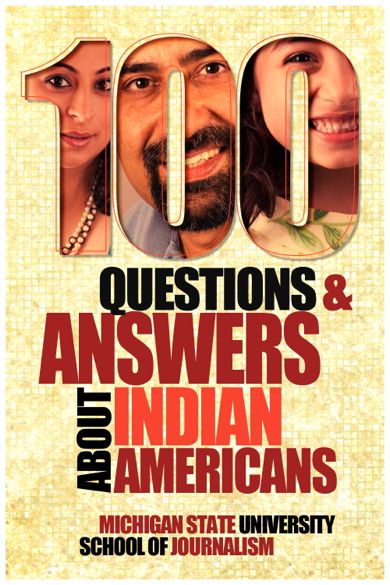Cultural competence: Which generation has no majority race?

CULTURAL COMPETENCE is rapidly becoming a valuable skill in business, education and public service. Michigan State University’s School of Journalism is publishing a series of guidebooks on various ethnic and cultural groups. This is the first volume. Click here to learn more about the book.
Which American age group has no majority race?
For years, we have known that one day the United States will no longer have a majority race.
That day is arriving for one age group. Do you know which one?
The U.S. Census Bureau reported this month that, in 2012, the proportion of minority children under the age of 5 had reached 49.9 percent. Given birth rates, it is likely that 2013 is the tipping point for that number to cross the halfway mark.
In many communities, if you want to get a look at the future, you will not see it at the grocery story or on main street—but in the schoolyard.
On Friday, OurValues showed a map that depicts how racially diverse our country has become. That map showed the largest minority groups by state. As our under-5-year-olds grow up, new maps will identify states in which minority groups make up the majority of the population overall. According to ThinkProgress, four states are already there: California, Texas, New Mexico and Hawaii.
Diversity is much more than race, of course. With that in mind, the Journalism School at Michigan State University and Read the Spirit have started a series of guides to cultural competence that will help us learn about our increasingly diverse nation.
This week, OurValues is encouraging a wide-ranging, civil conversation on these issues. I’ll return, each day, with four more columns in this series—each time sharing news and raising questions that may surprise you.
Today, please leave a comment below about …
Will today’s 5-year-olds build a more tolerant world?
Numerically, “minority” is increasingly inaccurate. What is a better term?
How can the nation get ready to leverage diversity as a strength?
Wayne Baker is a sociologist on the faculty of the University of Michigan Ross School of Business. Baker blogs daily at Our Values and can be reached at ourvaluesproject@gmail.com or on Facebook.


Comments
Ruth
Tue, Jun 25, 2013 : 5:38 p.m.
To your number 2 question, how about the term "segment"?
a2nancy
Tue, Jun 25, 2013 : 3:14 p.m.
I see parenting of children as extremely lax--kids allowed to roam "free" in restaurants and public places, disturbing diners, theater goers, shoppers, etc. If this is any indication of what this group will be like as adults, I'm not impressed. They will probably be more tolerant, but what kind of values will they hold? Unfortunately I will not be able to discuss race--we can't have an honest discussion without an immediate "witch hunt." This is something that needs to be addressed soon for the good of all. a2nancy
Gramma
Tue, Jun 25, 2013 : 11:39 a.m.
Before we can build a more tolerant world, it will be necessary to have open and honest discussions of our past. As a country, we will have to face our past of genocide, slavery, eugenics, Jim Crow, the internment camps for the Japanese during WWII and such before we can move on to treasuring diversity and the strength it brings. We will also have to look honestly at our "prisons for profit" system and what this means in real life. The movie industry presents certain groups of people as being gangsters and others as the good guys and victims. How will this change? We have to take an honest look at ourselves without attacking people with other viewpoints, making a serious effort to teach each other and our children about who we are, who we have been and who we would like to be.
lucinda walsh
Mon, Jun 24, 2013 : 2:16 p.m.
It is best left to sociologists to comment on race. They are protected by numbers. The rest of us are vulnerable to having our opinions misinterpreted. Thus, discussions about race should only take place in one's home.